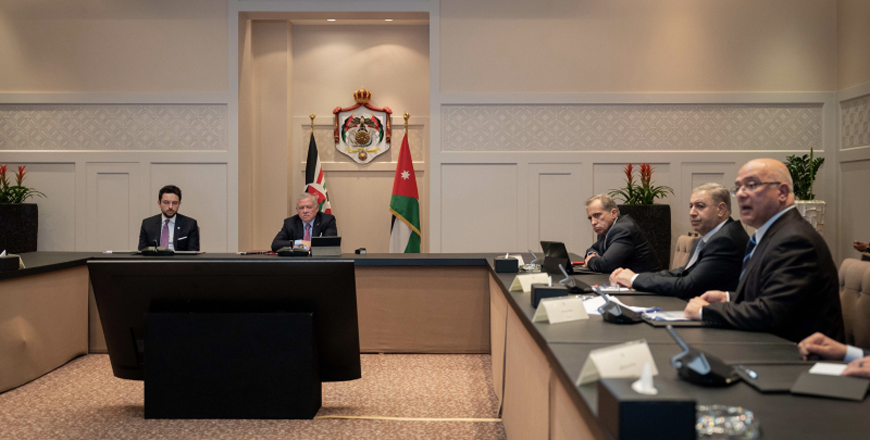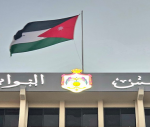You are here
Arab Potash Company advances global position, strengthens economic impact
By JT - Jan 25,2025 - Last updated at Jan 25,2025

Arab Potash Company Ghour Al Safi Plant (Photo courtesy of Arab Potash Company)
AMMAN — The Arab Potash Company (APC) has implemented major projects worth over $3 billion to boost production and expand exports, underscoring its commitment to achieving global presence in the potash industry, the Jordan News Agency, Petra, reported on Saturday.
The projects have been powered by the efforts of skilled national cadres, emphasising the company’s role in job creation, workforce development, and the promotion of global food security by supplying vital components for agricultural fertilisers.
The APC Chairman Shehadah Abu Hdaib and CEO Maen Nsour highlighted the company's milestones, ambitious expansion initiatives, and future projects. Among these are the Southern Expansion Project, which aims to increase potash production, and the development of a specialised fertiliser factory, as well as investments in the Jordan Bromine Company.
The APC’s is aliged with the Economic Modernisation Vision through enhancing production capabilities, fostering integration between fertilisers and Jordan’s available chemical elements, attracting foreign investments, and advancing high-value-added manufacturing industries.
A significant achievement is the establishment of the Research, Development, and Innovation Centre in Ghor Al-Safi, inaugurated under the patronage of His Majesty King Abdullah. The centre aims to enhance innovation and support the mining and chemical sectors.
Abu Hdaib revealed future initiatives with an estimated cost of $3 billion, a major project is the Southern Expansion Project, which is projected to increase the APC’s annual production capacity to over 3.5 million tonnes in order to enhance its regional and global competitiveness. Additional projects include development of value-added product, integration between potash and phosphate, and efforts aligned with the Economic Modernisation Vision to improve product quality and widen export markets.
Sustainability remains a cornerstone of the APC’s strategic vision, as reflected in projects such as Red Sea desalination to secure water resources, solar energy generation to reduce reliance on traditional energy, and the deployment of electric trucks to minimise carbon emissions.
A proposed railway to transport potash from Ghor Al-Safi to Aqaba’s ports further underscores the company’s dedication to reducing environmental impact while enhancing logistical efficiency.
The APC’s comprehensive initiatives are poised to provide new job opportunities, bolster the national economy, and fortify Jordan’s global position as a leading player in the potash industry.
Abu Hdaib highlighted the company’s critical contributions to enhancing global food security through its provision of essential agricultural inputs that boost crop productivity. This achievement, he underscored, positions Jordan as a significant player in advancing sustainable agriculture on the international stage.
The APC contributes significantly to Jordan’s economy, with exports comprising 8 per cent of the Kingdom’s total exports. Over the past six years, the company has infused approximately JD1.1 billion into the treasury and generated $8.6 billion in foreign currency revenues for the national banking sector.
Jordanian exports, particularly fertilisers, have seen remarkable growth, with fertiliser exports to the European Union tripling and exports to South America quadrupling over the last four years.
Abu Hdaib highlighted the performance of the APC's subsidiaries, including the Arab Fertilisers and Chemicals Industries Company (KEMAPCO), the world’s third largest producer of high grade potassium nitrate fertiliser, and the Numeira Mixed Salts and Mud Company, a key player in extracting Dead Sea minerals for therapeutic and cosmetic uses. Collectively, these subsidiaries contribute to creating employment opportunities and driving industrial progress.
The APC’s renewable energy projects reflect its commitment to environmental sustainability, aligning with global market standards, especially in Europe. The initiatives reduce carbon emissions, lower operational costs, and promote energy efficiency.
Nsour said the company has carried out investment projects worth JD450 million. These projects include a new pumping station, expanded production capacity for granular potash, solar salt works, and cutting-edge operations and logistics centre.
Additionally, the APC’s Research, Development, and Innovation Centre in Ghor Al-Safi in the Jordan Valley fosters advancements in Dead Sea mineral utilisation and diversifies product offerings, enhancing Jordan’s global competitiveness. The combined efforts ensure the APC remains a leading global player in mining and fertilisers, contributing to national economic growth and sustainable development.
Nsour highlighted the company’s outstanding operational and financial performance during the 2019 to 2024 period, reflecting its strategic focus on sustainability and growth. Over these years, the company achieved record production and sales of 15.9 million tonnes of potash, marking a 17 per cent growth in annual output, which increased from 2.4 million tonnes in 2018 to over 2.8 million tonnes in 2024.
The company's capital expenditures during this period averaged $213 million annually, amounting to a total investment of $1.3 billion. Concurrently, the company generated net profits totalling $2.2 billion, equivalent to an annual average of $367 million, indicating efficient resource utilisation and cost optimisation.
Nsour noted that the APC expanded its product range to nine high-quality potash varieties, compared to just three prior to 2019. These varieties are exported to key global markets, including the European Union, South America, the US, and Southeast Asia.
The company is poised to maintain substantial investment spending, aligning with plans for sustainable growth. Future projects include boosting production capacities, advancing operational efficiency, and enhancing the adoption of digital and artificial intelligence technologies.
Nsour highlighted a $800 million partnership with the US-based Albemarle Corporation to expand Jordan Bromine Company’s production capacity.
The five-year-project aims to position Jordan as the world’s largest producer of bromine and derivatives, widely used in industries such as medicine, flame retardants, and water treatment. The expansion is projected to create 650 permanent jobs and increase Bromine's contribution to the national GDP from 2.2 per cent to 5 per cent. Exports are also anticipated to double, further bolstering the Kingdom’s trade balance.
Nsour underscored the importance of addressing key challenges in the mining sector, such as operational efficiency, environmental compliance, and investment frameworks.
The 2024-2034 sectoral strategy, part of the Economic Modernisation Vision, aims to elevate Jordan's role in global fertiliser and chemical industries, promoting clean energy solutions and high-value derivatives.
The Government Investments Management Company holds a 26 per cent stake in the Arab Potash Company, followed by the Chinese group, State Development and Investment Corporation (SDIC) with 28 per cent and other shareholders, including regional and international investment entities.
Nsour concluded by reaffirming the company's commitment to driving economic sustainability and solidifying kindgom's leadership in global industrial and mining markets.
Related Articles
AMMAN — Arab Potash Company (APC) Chairman Shehadah Abu Hdaib and CEO Maen Nsour on Thursday discussed aspects for cooperation with French A
AMMAN — His Majesty King Abdullah on Tuesday directed the government to facilitate the Arab Potash company’s (APC) projects in water and ene
AMMAN — The Arab Potash Company (APC) net profit for the first half of 2022 amounted to JD296 million compared to around JD80 million in the

















